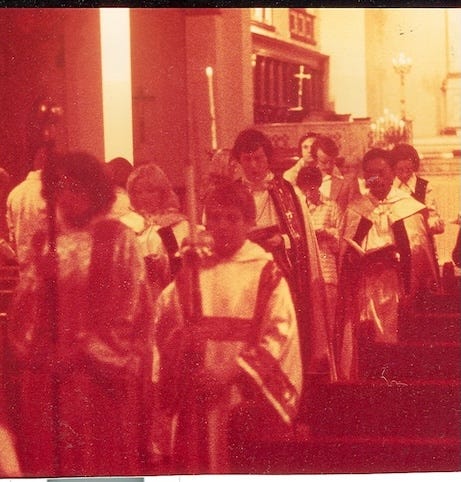Research, peaceful and violent protests
"Movements are most effective when they remain nonviolent and build broad coalitions"
There will be signs in the sun, the moon, and the stars, and on the earth distress among nations confused by the roaring of the sea and the waves. People will faint from fear and foreboding of what is coming upon the world, for the powers of the heavens will be shaken. Then they will see ‘the Son of Man coming in a cloud’ with power and great glory. Now when these things begin to take place, stand up and raise your heads, because your redemption is drawing near. Luke 21:25-28
Last week I posted Protesting exploring the issues of violence, nonviolence, and peaceful. Today I’m going to stay with the topic with a bit of research, a comment on peaceful protests and another on a violent protests.
The research
Here’s the summary, “In societies that have a reasonably free press, a persuadable bloc of citizens and free and fair elections, the historical, psychological and political evidence shows that movements are most effective when they remain nonviolent and build broad coalitions. And governments are most vulnerable when their use of force is perceived to be excessive or cruel.” I do love finding research that agrees with my own views!
This Is What Makes Protests Successful was posted in the New York Times by Dr. Wasow, of the University of California, Berkeley, and Dr. Willer, of Stanford. They reported on research about politics and protest. They look at the dynamics seen, on the one hand, when the state comes down too hard on protests, and on the other, when protests become violent. They noted research that “analyzed more than 300 campaigns from 1900 to 2006 and found that eschewing violence was more effective for movements. Nonviolent movements were about twice as likely to succeed as violent ones, largely because a commitment to nonviolent action allowed them to recruit broader support and provoke defections from the opposition.”
Peaceful
The “No Kings” protest was remarkable. It may have been the largest peaceful demonstration the nation has ever experienced. Millions of people in cities and towns in the streets. So let’s note 3 things:
It was peaceful
It showed that free speech is safe in America
The police protected and guided the protesters
I could add a few “buts” to each. But I won't. I'll let the main point be the main point.
Violence
Two examples. First, An unprovoked attack on Seattle journalist Brandi Kruse and her security outside an ICE facility last Saturday. Ms. Kruse has drifted to the right in recent years. Critics say she is self-aggrandizing, self-important, and annoying. Still, take a look at the video and ask yourself if the violence is justifiable or should be rationalized.
For several days there have been violent protests in Portland, Oregon. When the police order protesters to leave the area that is ignored. Notice that the protesters/rioters came expecting to fight with the police.
There have been similar violent protests in a number of cities. Often piggybacking on what began as peaceful demonstrations. I have an impression that in both the Portland situation and the attack on Brandi Kruse we’re seeing a set of actors that arrive at the scene with the intention of being violent. In the Protesting article I mentioned “a June 12 NBC report on the violence in Los Angeles, “a far-left online ecosystem that has proliferated in recent years, experts say. Some of the groups behind the accounts express contempt for peaceful resistance and glorify acts of violence — and even murders, like those of the United Healthcare CEO and two Israeli Embassy staffers. The leftist networks tend to be different from right-wing groups in that they are typically decentralized with no leadership structures.”
How is the Christian to respond to each of these issues?
We want to learn what we can from research. The research doesn't determine a Christian response, but it does need to influence our response. It is connected to the “reason” element in the Anglican three legged stool of scripture, tradition, and reason.
We want to encourage peaceful and nonviolent protests. If we are involved in movements ourselves, we can insist on norms and training that make nonviolence more likely.
We want to support law-enforcement in its efforts to identify and manage the relatively small group of people who are committed to violence.
In the tender compassion of our God *
the dawn from on high shall break upon us,
To shine on those who dwell in darkness and the
shadow of death, *
and to guide our feet into the way of peace.
The Song of Zechariah Benedictus Dominus Deus
This abides,
Brother Robert, OA




